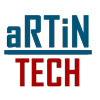Choosing the right ERP system for a small business is a critical decision that impacts long-term efficiency, scalability, and cost management. While a system might seem affordable and functional at the beginning, hidden costs and limited features can become major roadblocks as your business grows. Here are key factors to consider when selecting an ERP to ensure it remains a valuable asset over time.
1. Long-Term Affordability #
Many ERP providers offer low initial costs or even free versions to attract small businesses. However, as your team expands and requires more users, modules, or advanced features, the pricing can escalate quickly. Before committing to a system, carefully evaluate:
- How pricing changes with additional users
- The cost of adding new features or modules
- Any hidden fees for maintenance, updates, or support
A cost-effective ERP should provide transparent pricing that remains reasonable as your business scales.
2. Comprehensive Module Availability #
Your business needs today may be simple, but as it grows, operational complexity increases. Some ERPs focus only on core functions like manufacturing, sales, or warehouse management. However, as your business expands, you may need additional capabilities such as:
- Maintenance Management – To keep equipment and operations running smoothly
- Quality Management – Ensuring compliance as well as product and service excellence
- Workplace Safety & Compliance – Meeting regulatory requirements and maintaining a safe work environment
Select an ERP that offers a broad range of modules so that you can add them as needed, rather than switching systems entirely.
3. Ease of Integration and Data Migration #
Once your business data is stored in an ERP system, switching to another platform can be complicated, time-consuming, and costly. To avoid this, ensure:
- The ERP integrates seamlessly with other business tools (accounting software, CRM, etc.)
- Data migration is straightforward, should you ever need to change systems
- The system is flexible enough to adapt to future technology trends
4. User-Friendliness and Support #
A complex or difficult-to-use ERP can slow down your operations rather than improving efficiency. Look for:
- An intuitive interface that minimizes training time
- Strong customer support options (live chat, email, ticketing system)
- Regular updates and a responsive development team
An ERP should empower your employees, not create unnecessary hurdles.
5. Cloud vs. On-Premise Deployment #
Small businesses often benefit from cloud-based ERPs due to their lower upfront costs, automatic updates, and remote accessibility.
Final Thoughts #
The right ERP should grow with your business, offering both affordability and scalability without hidden costs or limitations. By carefully evaluating pricing, module availability, integration capabilities, usability, and deployment options, small businesses can make a smart ERP investment that supports long-term success.
🔗 Learn more about Artintech ERP
🔗 Explore Artintech ERP Modules
#SmallBusiness #ERPSelection #EnterpriseSoftware #BusinessGrowth #DigitalTransformation #ERPImplementation #CloudERP #ManufacturingSoftware #ComplianceManagement #BusinessAutomation




